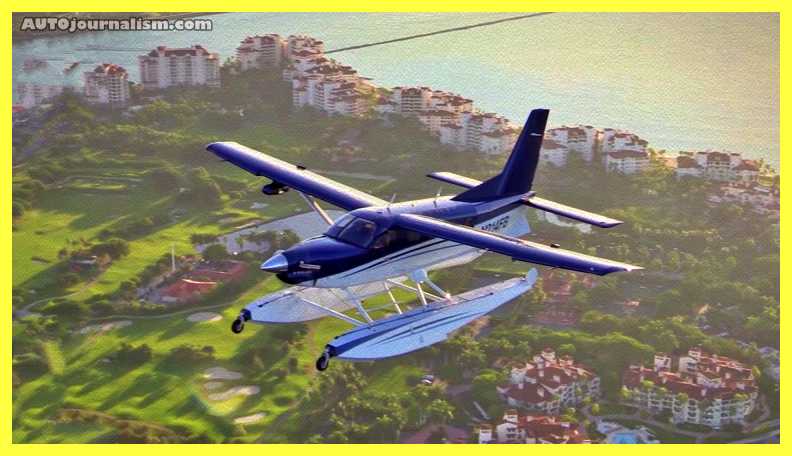Top 10 Fastest Helicopters in the World
Table of Contents
Today we will give you the list of the Top 10 Fastest Helicopters in the World 2024 and you can Download this Page as a PDF in 1 click, just go to the end of this Page, So let’s Start.
- In the ever-evolving realm of aviation, helicopters have continuously pushed the boundaries of speed and innovation. These marvels of engineering not only offer unparalleled versatility but also exhibit remarkable speed capabilities. Here, we delve into the exhilarating world of rotorcraft and explore the top 10 fastest helicopters soaring through the skies today.
Note: This is not a Rank List but these are the top 10 Fastest. (Speed Changes from Time to time cause of Upgrades and Downgrades)
Top 10 Fastest Helicopters in the World
Here is a complete table :
| Rank | Helicopter Name | Speed (mph/km/h) |
|---|---|---|
| 15 | Sikorski UH-60 Blackhawk | 183 mph / 295 km/h |
| 14 | NH Industries NH90 | 190 mph / 306 km/h |
| 13 | Eurocopter AS365 Dolphin | 190 mph / 306 km/h |
| 12 | Augusta Westland AW139 | 193 mph / 311 km/h |
| 11 | Augusta Westland AW159 Wildcat | 193 mph / 311 km/h |
| 10 | Kamov KA-52 Alligator | 217.48 mph / 350 km/h |
| 9 | Boeing CH-47F Chinook | 196 mph / 315 km/h |
| 8 | Mil MI-28 Havoc | 199 mph / 320 km/h |
| 4 | Eurocopter EC-155/H155 | 201 mph / 324 km/h |
| 6 | Westland Lynx | 249 mph / 401 km/h |
| 5 | Airbus H160 | 201.9 mph / 325 km/h |
| 4 | Mil MI-35 Hind | 208 mph / 335 km/h |
| 3 | Sikorski X2 | 299 mph / 481 km/h |
| 2 | Eurocopter X3 | 293 mph / 472 km/h |
| 1 | Bell Boeing V-22 Osprey | 351 mph / 565 km/h |
Also read: India journalism
Top 10 Fastest Helicopters Ever Made
Helicopters have come a long way since their invention, evolving into sophisticated machines that can push the boundaries of what’s possible in aviation. These remarkable aircraft combine cutting-edge technology and engineering genius to achieve mind-blowing speeds. From military machines to civilian choppers, they serve a variety of purposes. In this article, we will count down the top 10 fastest helicopters in the world, highlighting their capabilities, speed, and unique features.
#10 Kamov KA-52 Alligator: 217.48 mph / 350 km/h

The Kamov KA-52 Alligator is a highly effective attack helicopter developed by the Russian aerospace company Kamov. It features a side-by-side cockpit arrangement, providing excellent visibility for both the pilot and gunner. Powered by two TV3 turboshaft engines, it can reach a top speed of 217 mph and has a range of up to 339 miles. Armed with a 30mm cannon and multiple hardpoints for munitions, the KA-52 is well-suited for complex combat missions. It also boasts advanced avionics and targeting systems, making it effective in both day and night operations. This helicopter is a vital asset for battlefield intelligence gathering and is used by several countries, including the Russian military.
Here is a complete table summarizing the information provided about the Kamov Ka-52 Alligator helicopter:
| Feature | Details |
|---|---|
| Type | Russian Attack Helicopter |
| Seating Capacity | Two (Pilot and Gunner) |
| Operational Use | Destroying enemy tanks, armored and unarmored ground targets, low-speed aerial targets, personnel, aerial command posts, surveillance platform |
| Design Origin | Kamov Design Bureau, Russian Helicopters Division |
| Cost | Over $16 million |
| Maneuverability | Unique maneuverability due to two coaxial contra-rotating main rotors |
| Armor | Can withstand hits from 23 mm projectiles |
| Speed | – Maximum Speed: 350 km/h – Cruising Speed: ~260 km/h – Ferry Range: 1,100 km – Combat Radius: ~460 km |
| Countermeasures | – Active IR and electronic jammers – Radar Warning Receiver (RWR) – Laser Detection System – IR Missile Approach Warning Sensor |
| Engines | TV3-117VMA Turboshaft Engines |
| Development Timeline | – Development Started: 1994 – First Flight: 1997 – Current Fleet (As of 2022): 133 helicopters |
| Special Features | – Derived from the Ka-50 attack helicopter – Coaxial contra-rotating main rotors negate the need for a tail rotor |
| Notable Losses | 43 confirmed losses according to Dutch open-source intelligence outlet Oryx (visual evidence) |
#9 Boeing CH-47F Chinook: 196 mph / 315 km/h
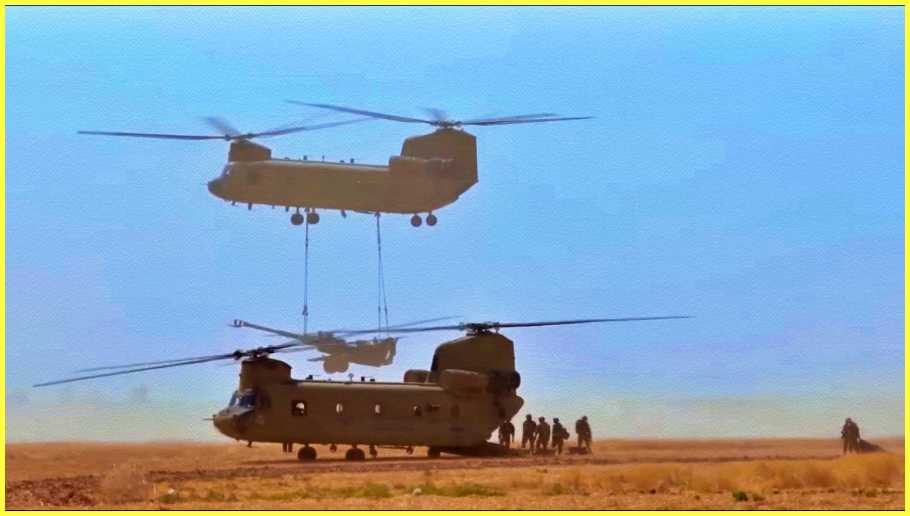
The Boeing CH-47 Chinook is one of the most well-known military helicopters, with its first designs dating back to the late 1950s. It remains one of the most powerful heavy-lift helicopters available, featuring a tandem rotor system for increased lift and load-carrying capacity. The CH-47F variant is the latest and most advanced version, equipped with modernized avionics, communication systems, and improved situational awareness tools. With two Lycoming T-55 turboshaft engines providing 4,700 shaft horsepower, it can reach speeds of up to 196 mph over a range of 460 miles. While primarily a transport helicopter, it can be fitted with machine guns for protection during deployments into hostile regions. The Chinook continues to be a workhorse for various military forces worldwide.
Here is the complete table summarizing the information provided about the Boeing CH-47F Chinook helicopter:
| Feature | Details |
|---|---|
| Type | Twin-engine, Heavy-lift Helicopter |
| Introduction Year | 1962 |
| Top Speed | 315 km/hr (196 mph) |
| Maximum Gross Weight | 50,000 pounds (Block I) or 54,000 pounds (Block II) |
| Height | 5.68 meters |
| Engine | Honeywell T55-714C, generating 6,000 shaft-horsepower at sea level |
| Cargo Capacity | Internally: Up to 10,900 kg; Externally: Up to 12,700 kg on a sling load |
| Crew | Two Pilots and a Flight Engineer |
| Fuel Capacity | Self-sealing fuel tanks with a capacity of 1,030 gallons |
| Primary Missions | Troop Movement, Artillery Emplacement, Battlefield Resupply, Medical Evacuation, Search and Rescue, Parachute Drops, Disaster Relief, Aircraft Recovery |
| Secondary Missions | Aerial Sustainment, Aircraft Recovery |
| Customers | Australia, Canada, Greece, Italy, Japan, Netherlands, South Korea, Spain, United Kingdom |
| Notable Events | – First Flight: September 21, 1961 – Certified Combat Ready by U.S. Army: 1962 – Used in Falklands War (1982) |
Please note that some specific details like the range and the list of customers were not provided in the given information.
#8 Mil Mi-28 Havoc: 199 mph / 320 km/h
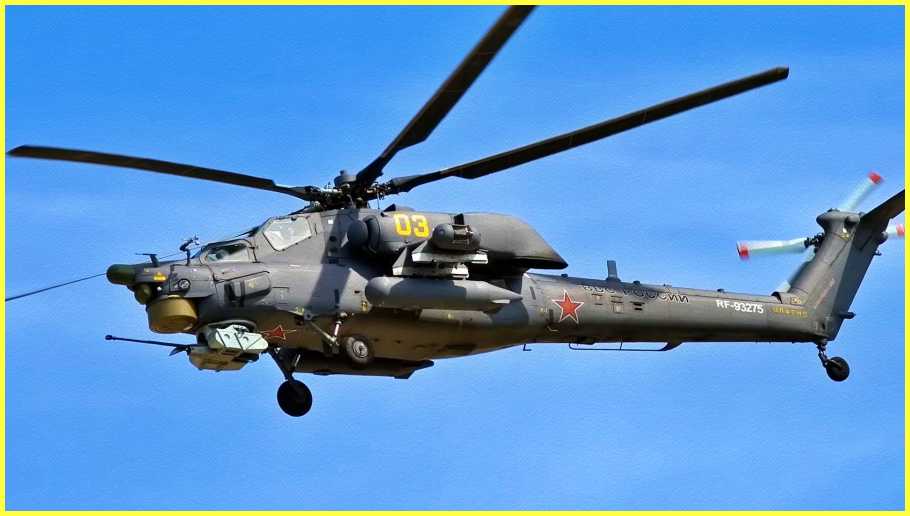
The Mil Mi-28 Havoc, known by NATO as the Havoc, is a full-on attack helicopter designed for combat. Built at the Mil Moscow helicopter plant, it’s one of the most important attack helicopters in the Russian military’s arsenal. With extensive armor protection for the crew and vital systems, the Mi-28 can withstand direct hits from small arms fire and some anti-aircraft weapons. It is equipped with a 30mm autocannon, guided and unguided munitions, infrared and electro-optical sensors, and a laser rangefinder. This combination makes it highly effective in both day and night operations. With two Klimov TV3-117 turboshaft engines, it reaches a maximum speed of 199 mph and has a range of up to 270 miles. The Mi-28 is used by various countries, including Algeria and Iraq.
Here is the complete table summarizing the information provided about the Mil Mi-28 Havoc attack helicopter:
| Feature | Details |
|---|---|
| Type | Two-seat, Twin-Engine Attack Helicopter |
| Development | – Development Started: 1972 after the Mi-24 project completion – Production Began: 1982 – First Prototype Flight: 1982 – Mi-28N Variant Introduced: 2009 |
| Standardization | One of the two standardized attack helicopters used by Russian forces |
| Operational Status | Standard Attack Helicopter of the Russian Armed Forces |
| Armor Protection | Armor protection for critical systems and aggregates |
| ECM System | Electronic Countermeasures (ECM) system protecting against portable Surface-to-Air Missiles (SAM) with multi-specter thermal homing warheads |
| Maximum Speed | 199 mph / 320 km/h |
| Range | 1,100 km (683 miles) |
| Weight | 7,000 kg (15,432 lbs) |
| Armament | – 30mm 2A42 Cannon – 9M120 Ataka Anti-Tank Missiles – 80mm S-8 Rockets – UPK-23 Gun Pods |
| Countermeasures | Countermeasures against radar-guided missiles |
| Production Status | Over 120 helicopters produced, and production continues |
| Cost | – 2002: Over $15 million – 2006: $12,000,000 |
| History | – First Prototype Flight: 1982 – Successor to Mi-24 Hind – Sacrificed transport capabilities for increased performance as an attack helicopter |
#7 Eurocopter EC-155: 201 mph / 324 km/h
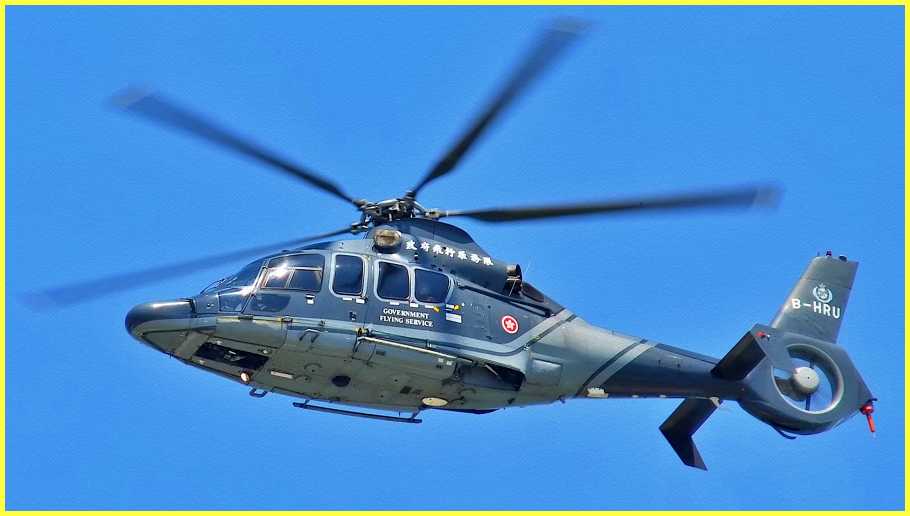
The Eurocopter EC-155, now known as the Airbus Helicopters H155, was developed for civilian use as a long-range medium-lift passenger aircraft. Its spacious and luxurious cabin can accommodate up to 12 passengers in a corporate configuration. Powered by two Turbomeca Arriel turboshaft engines, it boasts a range of 533 miles and a top speed of 201 mph. The EC-155 features a fully glass cockpit with advanced avionics and communication systems. This helicopter is ideal for executive and VIP transport, offering a stable and comfortable ride. It also has applications in emergency medical services, search and rescue, offshore transportation, and law enforcement.
Here is a complete table:
| Feature | Details |
|---|---|
| Type | Medium-Lift Passenger Transport Helicopter |
| Development | – First Service: 1998 |
| Former Name | Eurocopter EC-155, now known as Airbus Helicopters H155 |
| Engines | Twin Turbomeca Arriel 2C2 engines with FADEC control |
| Rotor System | Five-blade main rotor |
| Cabin | – Wider than AS365 Dauphin – Large cabin with capacity for up to 14 passengers depending on configuration |
| Speed | Maximum Speed: 201 mph / 324 km/h |
| Autopilot | Four-axis autopilot for steep approaches in zero visibility |
| Navigation | Differential Global Positioning System (DGPS) |
| Special Features | – Noise Cancelling System – Large baggage compartment accessible from both sides of the aircraft |
| Capacity | – Passenger Capacity: Up to 13 passengers and 1 or 2 crew – Can accommodate up to 14 passengers depending on configuration |
| Uses | Transportation, Police, Public service, Offshore, Emergency Medical Service (EMS) |
| Cost | $14 million |
| Operators | Flown by 70-plus operators in more than 30 countries |
| Additional Information | – Used as a demonstrator for Eurocopter’s All Weather Helicopter (AWH) program |
| – First flight of the demonstrator: October 2002 |
#6 Westland Lynx: 249 mph / 401 km/h
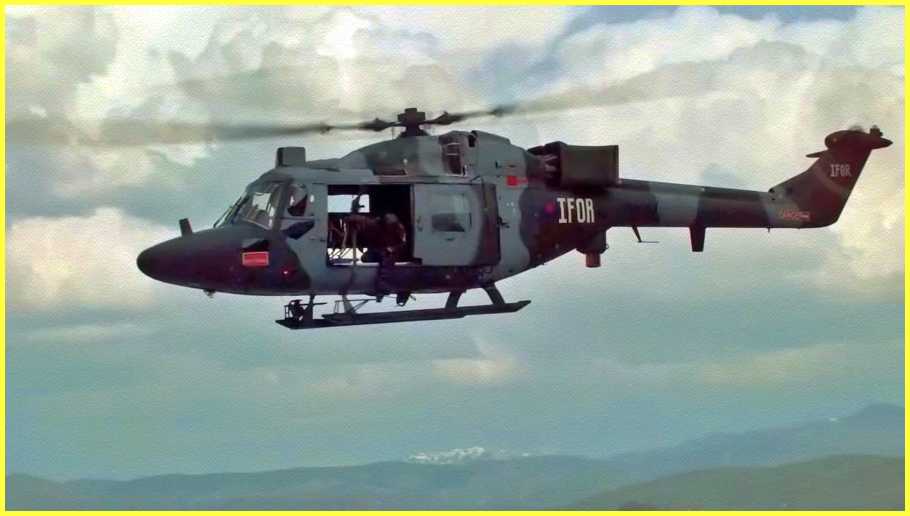
The Westland Lynx, first introduced in 1978, is a British-designed multi-purpose helicopter. It is known for its nimbleness and speed, capable of reaching speeds of over 249 mph with a range of 328 miles. The Lynx’s sleek and streamlined design, with a rotor system featuring four-bladed main and tail rotors, allows it to perform aerobatic maneuvers like loops and rolls. It can carry up to eight people or about 3,000 pounds of cargo. The Lynx has found success in anti-submarine warfare, troop transport, search and rescue, and reconnaissance missions. While some navies have retired their Lynx helicopters, others, including Brazil, South Africa, Malaysia, Germany, and South Korea, continue to use them.
Here is a complete table:
| Feature | Details |
|---|---|
| Type | British Military Helicopter |
| Manufacturer | Originally designed and built by Westland Helicopters, now produced and marketed by AgustaWestland |
| Design and Development | – First Flight: 1971 – Operational Usage: 1977 – Adapted for battlefield utility, anti-armor, search and rescue, anti-submarine warfare |
| Engine | Twin Rolls-Royce Gem engines |
| Rotor System | Semi-rigid rotor for agility, reliability, and minimal maintenance |
| Automatic Flight Control System | Reduces pilot workload, especially in bad weather |
| Speed Records | – International Speed Record: 249.09 mph – G-Lynx World Record: 400.87 km/h (249.10 mph) |
| Dimensions | – Main Rotor Diameter: 42 ft – Length: 50 ft – Height: 12 ft 3 in – Weight (Loaded): 10,747 lbs |
| Performance | – Maximum Speed: 249 mph / 401 km/h, 216 knots – Hovering Ceiling: 3.2 km – Rate of Climb: Forward: 730 ft/min, Vertical: 1,150 ft/min |
| Weapons | – 7.62mm machine gun inside the cabin for army version – External mount options: 20mm cannons, miniguns, gun pods, rocket pods, air-to-surface missiles |
| Operational Usage | – Adopted by armed forces of over a dozen nations |
| Special Features | – Fully aerobatic, capable of loops and rolls |
| Manufacturer’s Transformation | Originally designed for civil and naval use, adapted for military purposes |
| Current Producer | AgustaWestland (now Leonardo Helicopters) |
#5 Airbus H160: 201.9 mph / 325 km/h
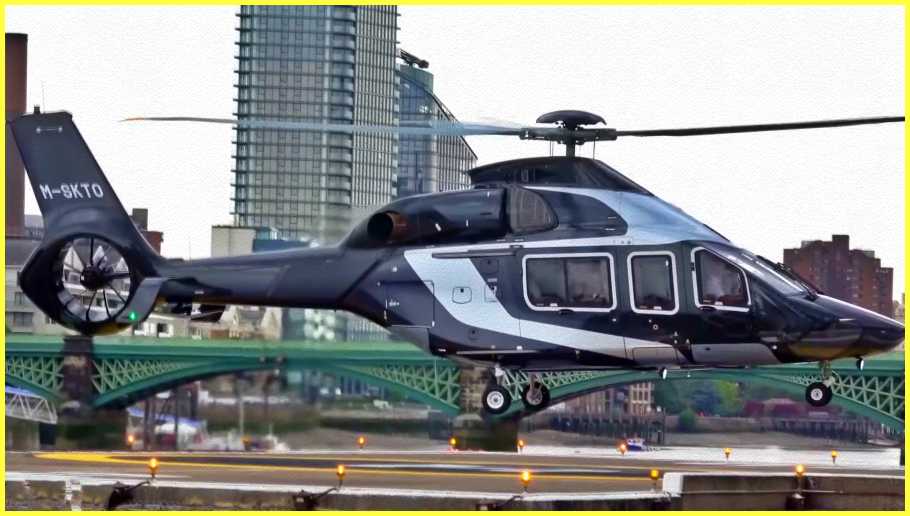
The Airbus H160, introduced in 2021, is a medium-sized utility helicopter and one of the most advanced commercially available models in its class. Powered by twin turboshaft engines, it can reach a top speed of 201.9 mph and has a range of up to 550 miles. The H160 features a spacious and modular cabin designed for passenger comfort and flexibility. With various cabin configurations, it is suitable for executive transport, emergency medical services, search and rescue, offshore transportation, and law enforcement. The H160’s cockpit is equipped with state-of-the-art avionics, including the Helionix digital avionics suite, offering intuitive controls and enhanced safety features. This helicopter is poised to become a popular choice for a range of missions.
Here is a complete table:
| Feature | Details |
|---|---|
| Type | Medium Utility Helicopter |
| Manufacturer | Airbus Helicopters |
| Launch Year | 2015 |
| Length | 13.96 m (45 ft 10 in) |
| Width | 3.54 m (11 ft 7 in) |
| Height | 4.91 m (16 ft 1 in) |
| Maximum Takeoff Weight | 13,436 lb (6,050 kg) |
| Empty Weight | 8,929 lb (4,050 kg) |
| Useful Load | Up to 4,409 lb (2,000 kg) |
| Crew Capacity | 1 or 2 pilots |
| Passenger Capacity | Up to 12 passengers and 2 crew members |
| Engine | Safran Arrano |
| Maximum Cruise Speed | 150 knots (173 mph, 280 km/h) |
| Maximum Speed | 201.9 mph / 325 km/h |
| Service Ceiling | 20,000 feet |
| Range | 475 nautical miles (552 miles, 890 km) with standard tanks |
| Fuel Consumption | 395 kg/h at low layer and 320 kg/h at 8,000 feet |
| Fuel Tank Capacity | 2,468 lb |
| Special Features | – Large windows for visibility – Advanced rotor blade technology – Digital avionics – Air conditioning and heating – Customizable lighting – Lowerable middle seat |
| Configurations | – Offshore transportation – Business and private aviation (ACH160 variant) – Public services – Commercial passenger transport |
| Price (Estimated) | – Pre-owned: $14,000,000 to $18,000,000 – New: $18,000,000 |
| Additional Information | – Designed for performance, economic competitiveness, safety, and comfort – Part of the H generation of Airbus helicopters |
#4 Mil Mi-35 Hin: 208 mph / 335 km/h
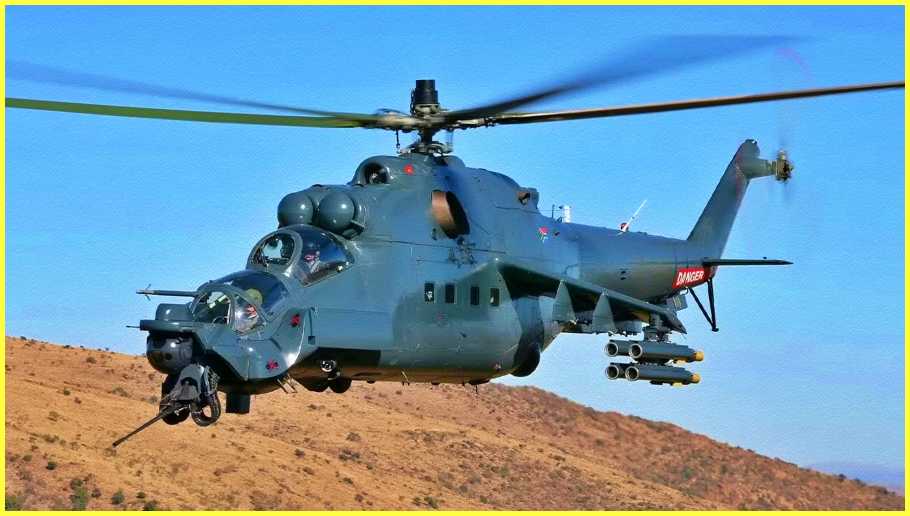
The Mil Mi-35 Hind, designed and built in the late 1960s, is a heavily armed attack helicopter known for its fearsome firepower and combat survivability. With a tandem rotor design and extensive armor protection, it can withstand hits from small arms fire and some anti-aircraft weapons. Armed with rockets, anti-tank guided missiles, and a 23mm twin-barrel cannon, the Mi-35 can provide close air support and carry up to eight troops or 5,200 pounds of cargo. It has a range of 280 miles and a top speed of 201.9 mph. This versatile helicopter operates in diverse environments and has been used by various countries, making it a dominant presence on the battlefield.
Here is a complete table:
| Feature | Details |
|---|---|
| Type | Russian Attack Helicopter |
| Variant | Mi-35 Hind / Mi-35M / Mi-35 Hind E |
| Manufacturer | Mil Moscow Helicopter Plant, Russia |
| Introduction Year | Mi-35 Hind: Export version of Mi-24 Hind (Year not specified) |
| Mi-35M: First revealed in 1999 | |
| Crew | Two |
| Troop Capacity | Eight soldiers in the passenger compartment (Mi-35 Hind E: Can hold eight fully armed soldiers or four stretchers) |
| Maximum Take-off Weight | 12,000 kg |
| Maximum Speed | 208 mph / 335 km/h |
| Ferry Range | 1,000 km |
| Operational Altitude | 5,400 m |
| Normal Range | 460 km (Mi-35 Hind) |
| Engines | Two V117V or VK 2500 engines (Mi-35 Hind E: Klimov VK-2500-02 turboshaft, rated at 2,200shp for take-off) |
| Armament | – Up to 8 x 9M114 or 9M120 Ataka V Cycles radio-guided anti-tank missiles |
| – Up to 80 x 80mm unguided rockets | |
| – 20 x 122mm unguided aircraft rockets (Type 122) | |
| Anti-Surge System | Protects the engines from powder gases from salvo rocket launches (Mi-35 Hind E) |
| Passenger Compartment | Can hold eight fully armed soldiers or four stretchers (Mi-35 Hind E) |
| Special Features | – Night and adverse weather operation capabilities |
| – Civilian Identification Friend or Foe (IFF) responder system | |
| – New systems for signaling and flight data recording (Mi-35 Hind) | |
| History | – Manufactured by Mil Moscow Helicopter Plant in Russia |
| – Production began in 2005 | |
| Current Operators (approx) | – Azerbaijan (24) |
| – Brazil (12) | |
| – Iraq (24) | |
| – Venezuela (8) | |
| – Possibly other countries (Mi-35 Hind E) | |
| Primary Uses | – Destroy ground-based armored targets |
| – Provide air support for ground missions | |
| – Modified versions for attack, ground assault, medical evacuation, or transport platforms (Mi-35 Hind E) |
Please note that specific details regarding the Mi-35 Hind variant were not provided, so the table includes information common to various Mi-35 variants.
#3 Sikorsky X2: 299 mph / 481 km/h
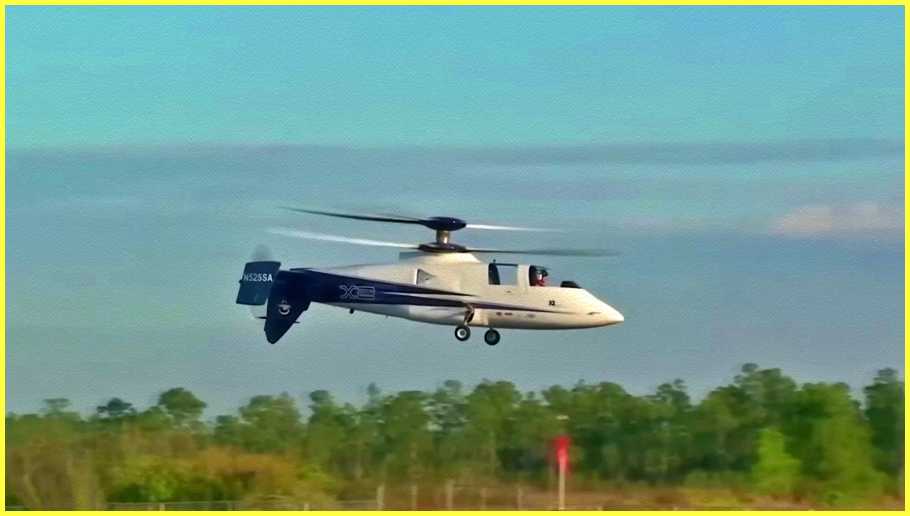
The Sikorsky X2, an experimental helicopter, aimed to push the boundaries of speed and performance. It reached an impressive top speed of 299 mph, setting a record for helicopter speed in its category. The X2’s design incorporated a six-bladed pusher propeller and two contra-rotating four-bladed rotors, powered by a single T800 turboshaft engine. This unique configuration allowed for high-speed flight, and it served as a testbed for new technologies, including fly-by-wire controls and advanced rotor systems. While the X2 was never intended for commercial use, its innovations have paved the way for future helicopter designs.
Here is a complete table:
| Feature | Details |
|---|---|
| Type | Experimental High-Speed Helicopter |
| Variant | Sikorsky X2 |
| Manufacturer | Sikorsky Aircraft |
| First Flight | August 27, 2008 |
| Retired | 2011 |
| Maximum Speed | 299 mph (481 km/h) |
| Level Flight Speed | 250 knots (463 km/h / 288 mph) |
| Rotor Configuration | Two Four-Bladed Co-Axial Rotors |
| Propeller | Six-Bladed Pusher-Type Propeller |
| Engine | LHTEC T800-LHT-801 Turboshaft Engine |
| Crew | 2 (Operated by 1 Pilot) |
| Rotor Diameters | 8.1 m (26 ft 5 in) |
| Length | 9.1 m (29 ft 10 in) |
| Height | 2.4 m (7 ft 10 in) |
| Empty Weight | 2,404 kg (5,300 lb) |
| Gross Weight | 2,722 kg (6,000 lb) |
| Maximum Range | 1,300 km (807 miles) |
| Hover Characteristics | Checked during a short 30-minute hop on the first flight (August 27, 2008) |
| Technology | Incorporates leading-edge aerospace technologies |
| Notable Achievement | Achieved a level flight speed of 250 knots on September 15, 2010, marking a 15% improvement over conventional helicopters |
| Location (Retired) | Steven F. Udvar-Hazy Center, Chantilly, Virginia |
Please note that some specific technical details might not have been provided, so the table includes the information available in the given text.
#2 Eurocopter X: 293 mph / 472 km/h
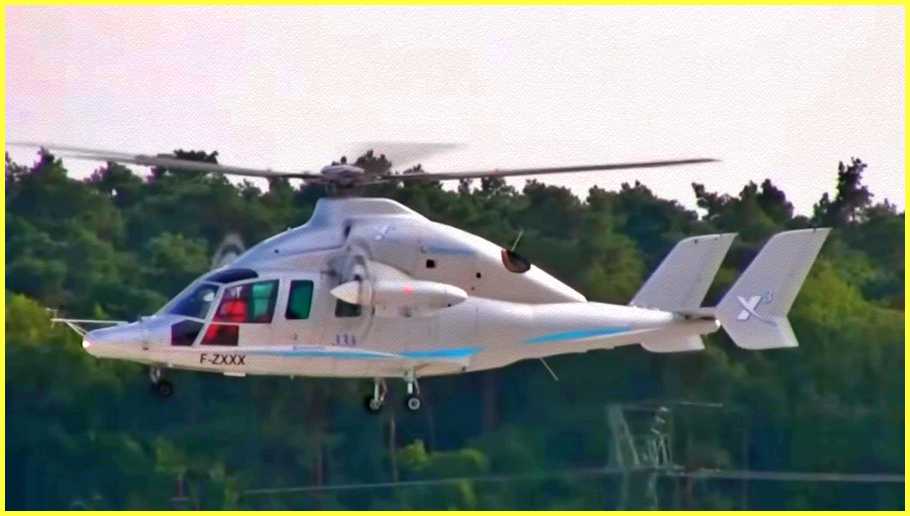
The Eurocopter X3, later known as the Airbus Helicopters X3, was an experimental high-speed hybrid helicopter that bridged the gap between traditional helicopters and fixed-wing aircraft. The X3 featured two sets of rotors, combining traditional main rotors for lift with forward-facing propellers for thrust. During a test flight in 2013, the X3 reached a maximum speed of 293 mph, showcasing its exceptional speed and performance. While the X3 was retired after demonstrating its capabilities, it provided insights into the potential of hybrid rotorcraft. Airbus has since developed the Racer, a variant of the X3, with a cruising speed of 249 mph, targeting various industries, including offshore oil and search and rescue.
Here is a complete table:
| Feature | Details |
|---|---|
| Type | Experimental High-Speed Helicopter |
| Model | Eurocopter X3 |
| Manufacturer | Eurocopter SAS (later Airbus Helicopters) |
| First Flight | September 6, 2010 |
| Speed | Projected speed of over 220 knots (407 km/h) |
| Unofficial speed record of 255 knots (472 km/h; 293 mph) in level flight on June 7, 2013 | |
| Maximum Speed | 472 km/h (293 mph) |
| Cruising Speed | 407 km/h (253 mph) |
| Engine | Rolls-Royce Turbomeca RTM322 engine |
| Additional Engine | Drives additional propellers |
| Weight | Basic weight of 539 lb (234 kg) |
| Rate of Climb | 25 m/s (4,921 feet/min) |
| Turn Rates | High-G turn rates of 2Gs at 210 knots |
| Hovering Abilities | Can hover with a pitch attitude between -10 and +15 degrees; bank range of 40 degrees in hover |
| Service Ceiling | 3,810 m (12,500 ft) |
| Missions | Airborne law enforcement, search and rescue, offshore, executive, EMS |
| Development | Developed from the EC155; One prototype |
| Notable Achievements | Reached a speed of 255 knots (472 km/hr) in level flight on June 7, 2013 |
| Reached a speed of 263 knots (487 km/hr) during a descent | |
| Location (Retired) | Placed in a French air museum in the village of Saint-Victoret in June 2014 |
Please note that specific technical details might not have been provided, so the table includes the information available in the given text.
#1 Bell Boeing V-22 Ospre: 351 mph / 565 km/h
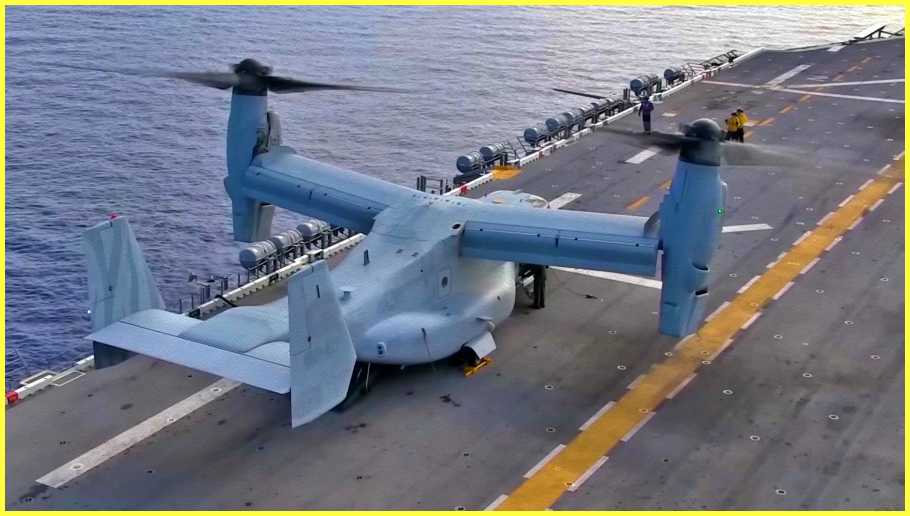
The Bell Boeing V-22 Osprey is a groundbreaking tiltrotor aircraft, combining the vertical takeoff and landing capabilities of a helicopter with the speed and efficiency of a turbo-prop airplane. It can reach a top speed of 351 mph and has a range of over 1,000 miles. With its ability to carry up to 32 troops or 20,000 pounds of cargo, the V-22 Osprey is a versatile aircraft used by the US Marine Corps, Air Force, and Navy, as well as the Japanese Self-Defense Force. Its unique tiltrotor design allows it to operate from various platforms, making it a crucial asset for military operations, including amphibious assaults, aircraft carriers, and austere landing zones.
Here is a complete table:
| Feature | Details |
|---|---|
| Type | Military Aircraft |
| Model | Bell Boeing V-22 Osprey |
| Development Partners | Developed jointly by Bell Helicopter and Boeing |
| First Flight | March 19, 1989 |
| Introduced into Service | June 13, 2007 |
| Main Assembly Facility | Amarillo, Texas |
| Cost | Approximately $84 million |
| Design | Unique tiltrotor design combining vertical takeoff and landing (VTOL) with the speed and range of a fixed-wing aircraft |
| Capabilities | – Vertical Takeoff and Landing (VTOL) Capability – Short Takeoff and Landing (STOL) Capability – Heavy Lift – Rapid Speed – Foldable Rotors |
| External Load Capacity | 15,000 pounds |
| Cabin Load Capacity | Up to 20,000 pounds for short missions |
| Wingspan | 14 meters (approx. 45.9 feet) |
| Features | – Tiltrotor Design: Combines features of a helicopter and a turboprop airplane – Multi-Engine, Dual-Piloted, Self-Deployable Design – Foldable Rotors |
| Missions | Designed for combat, combat support, combat service support, and Special Operations missions worldwide |
| Notable Technology | Versatile, proven technology |
| History | – First flight on March 19, 1989 – Introduced into service on June 13, 2007 |
| Use | Designed for combat, combat support, combat service support, and Special Operations missions worldwide |
Conclusion:
- The evolution of helicopters has led to the development of these high-speed aircraft, revolutionizing military and civilian operations. From attack helicopters to utility and transport helicopters, each model on this list represents the pinnacle of engineering and technology, showcasing the incredible speed and versatility achievable in modern aviation. As technology continues to advance, these helicopters serve as a testament to human ingenuity and the endless possibilities in the world of rotorcraft.
Also Read:
- Top 10 Cheapest Convertible Cars in the World 2024 ($$$)
- Top 10 Electric Boats in the world 2024
- Top 10 Safest Armored Personnel Carriers in the World 2024
- Top 10 Most Luxurious Buses in the World 2024 ($$ Expensive)
- Top 10 Biggest Rock Crushers in the World (PDF + Images)
- Top 10 Upcoming Toyota Cars in 2024 (Most Anticipated Cars)

